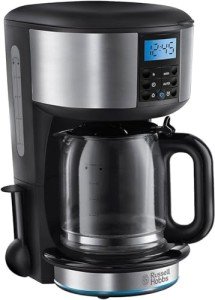Why Incorporating A Word Or Phrase Into Your Life Can Make All The An Impact
The Rise and Reign of Coffee Brewers: A Comprehensive Guide to Brewing Perfection
Coffee is more than just a drink; it's a routine that many around the world cherish. Whether it's the first cup to start the day or a mid-afternoon pick-me-up, the technique of preparation considerably influences the taste and general experience of coffee. Coffee brewers have actually developed significantly for many years, from traditional drip machines to sophisticated espresso makers, making it necessary for coffee enthusiasts to understand the various types available and their special benefits.
The Evolution of Coffee Brewing Methods
Coffee brewing has a rich history that covers centuries. The approach utilized frequently reflects cultural customs and improvements in innovation. Here, we will explore some of the most popular coffee developing techniques, their benefits and drawbacks, and which type of brewer might fit various way of lives and preferences.
1. Drip Coffee Makers
The drip coffee machine is one of the most popular brewing approaches, particularly in families and offices.
Pros:
- Simple to use: Just add water and coffee premises.
- Suitable for developing numerous cups at the same time.
- Constant flavor with automatic temperature control.
Cons:
- Limited control over developing time and temperature level.
- Typically requires filtered coffee, which some may discover limiting.
2. French Press
The French press, likewise referred to as a press pot or plunger pot, is favored by many for its abundant flavor extraction.
Pros:
- Allows for total control over brewing time.
- Produces a thick and flavorful cup of coffee.
- No requirement for paper filters, which is environmentally friendly.
Cons:
- Requires more manual effort than automatic machines.
- Can lead to sediment in the bottom of the cup.
3. Espresso Machines
Espresso machines range from manual to totally automated systems designed to produce concentrated coffee shots.
Pros:
- Versatile: Can make espresso, cappuccinos, lattes, and more.
- Creates rich, vibrant tastes and a silky crema.
Cons:
- Typically more costly and needs more knowledge to operate.
- Cleaning and upkeep can be more complicated.
4. Pour-Over Coffee Makers
Pour-over approaches like the Chemex and Hario V60 have actually acquired traction for their ability to brew a clean and aromatic cup.
Pros:
- Provides excellent control over the brewing procedure.
- High-quality taste extraction when done correctly.
Cons:
- Time-consuming and needs skill to ideal.
- Not perfect for producing large quantities.
5. Cold Brew Coffee Makers
Cold brew is made by soaking coarsely ground coffee in cold water, producing a smooth, less acidic beverage.
Pros:
- Smooth and refreshing, with lower acidity compared to hot brew.
- Can be made in large batches and saved for days.
Cons:
- Requires advanced preparation, as steeping can take 12 to 24 hours.
- Some may dislike the distinct taste profile.
Brewing Method
Pros
Cons
Drip Coffee Maker
Easy, brews numerous cups
Restricted control
French Press
Complete control, abundant flavor
Manual effort needed
Espresso Machine
Versatile, rich flavors
Greater expense and intricacy
Pour-Over
Excellent control, high-quality taste
Time-consuming, skill-dependent
Cold Brew
Smooth, low level of acidity
Long developing time, unique flavor profile
Choosing the Right Coffee Brewer
When choosing a coffee maker, a number of aspects should be thought about:
Brew Size: How lots of cups do you typically make at the same time? For those developing for a crowd, a drip coffee maker or a larger French press may appropriate.
Time Commitment: How much time are you ready to devote to brewing? If time is of the essence, automatic machines may be more suitable.
Taste Preferences: Do you take pleasure in complicated flavors and boldness? visit the up coming site or pour-over technique may be perfect.
Budget: High-quality coffee machines can vary substantially in rate, so identifying your spending plan will limit options.
Space: Consider the countertop space offered in your cooking area, as some brewers can be rather large.
FAQs About Coffee Brewers
1. How do I clean my coffee brewer?
Many coffee machine have specific cleaning directions in their manuals, but simple approaches consist of:
- For drip coffee makers: Run a service of vinegar and water through the brew cycle followed by clean water.
- For French presses: Disassemble the plunger and clean it under hot water utilizing a soft sponge.
2. How typically should I replace my coffee machine?
Usually, coffee makers can last anywhere from 5 to 10 years with appropriate care. If you notice a decrease in the flavor of your coffee or relentless problems with performance, it might be time for a replacement.
3. Can I utilize routine coffee with an espresso machine?
Yes, you can utilize regular coffee, however it won't yield the exact same focused flavor profile as utilizing espresso roast coffee specifically created for such machines.
4. What is the best coffee-to-water ratio for brewing?
A basic guideline is the “Golden Ratio” of 1:16, which is one part coffee to 16 parts water, however experimentation might lead you to your individual preference.
5. Are expensive coffee machine worth it?
Higher-end coffee machine typically have better develop quality, more functions, and supply better flavor control. However, “worth it” can be subjective based upon individual needs and budget.
The variety of coffee brewers readily available today permits lovers to explore and explore tastes, strategies, and developing times, making every cup an unique experience. Whether deciding for a basic drip machine or mastering the art of espresso developing, the journey of creating the ideal cup of coffee continues to develop. By comprehending the various developing techniques and their characteristics, people can make informed decisions that enhance their day-to-day coffee ritual and gratitude. After all, the ideal brewer can make all the difference in taking pleasure in that much-loved cup of joe.
